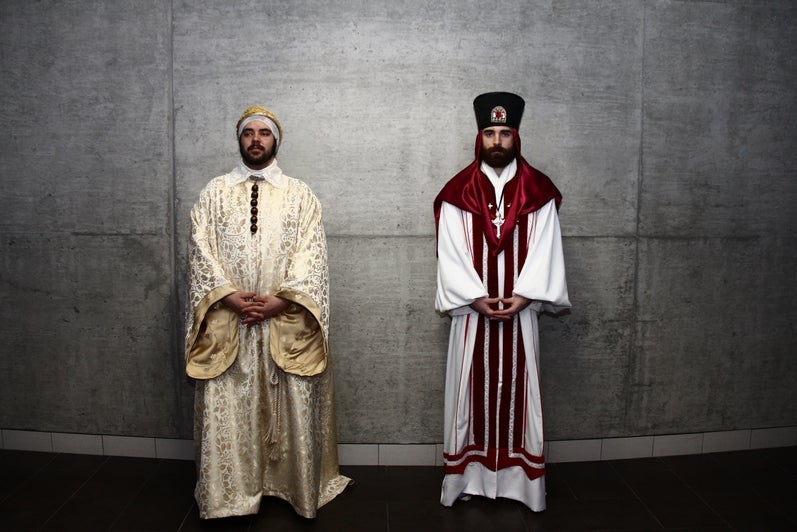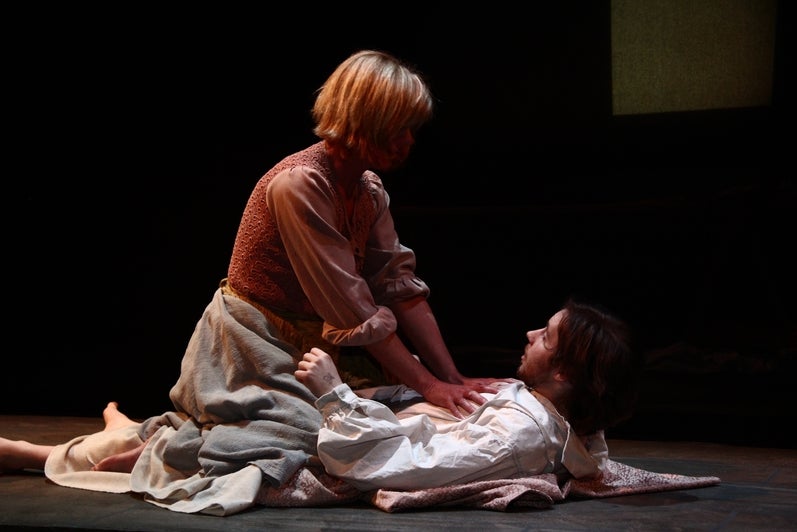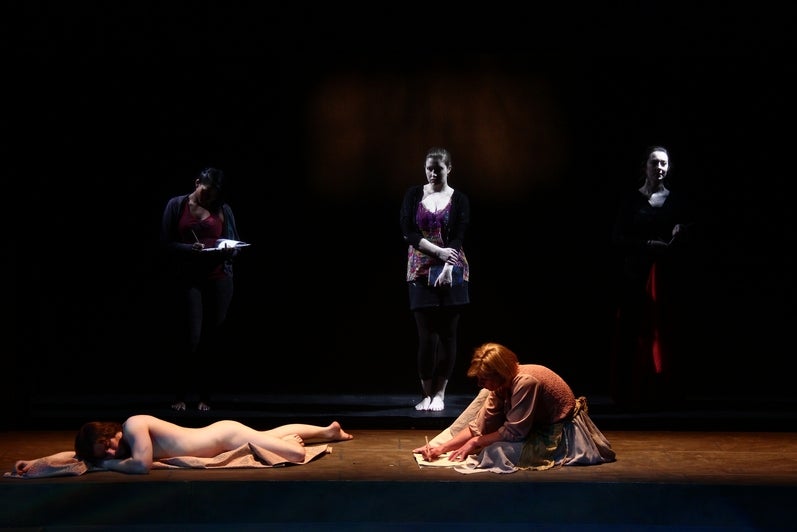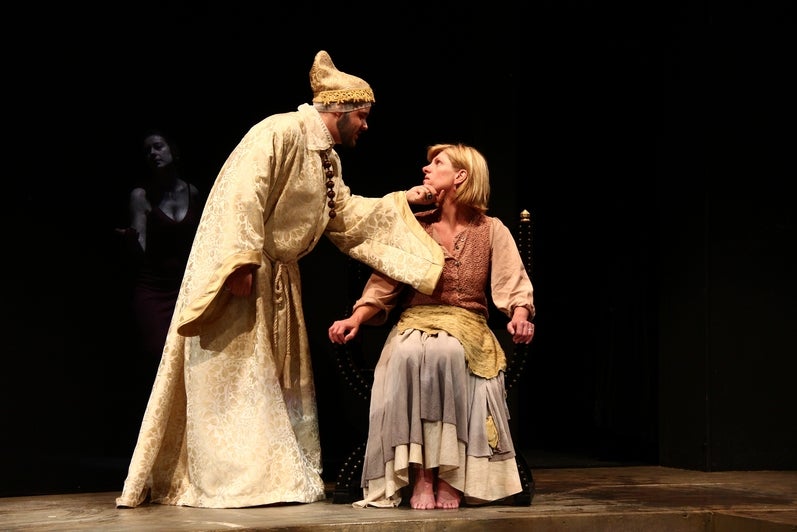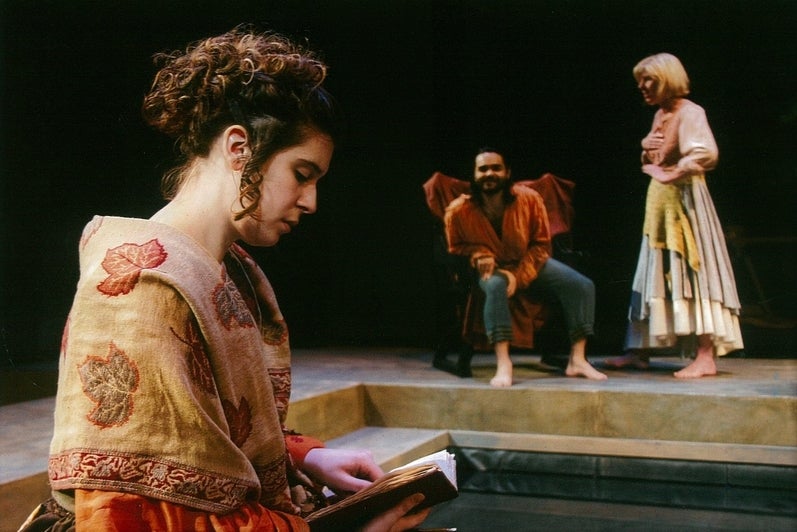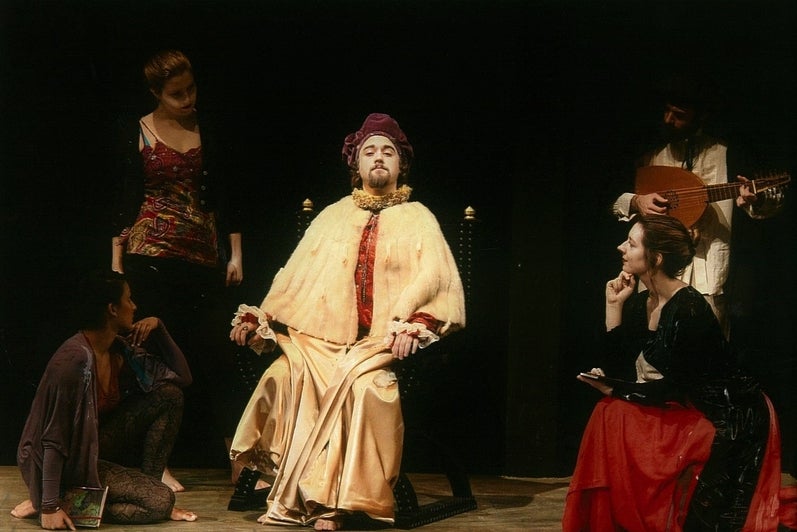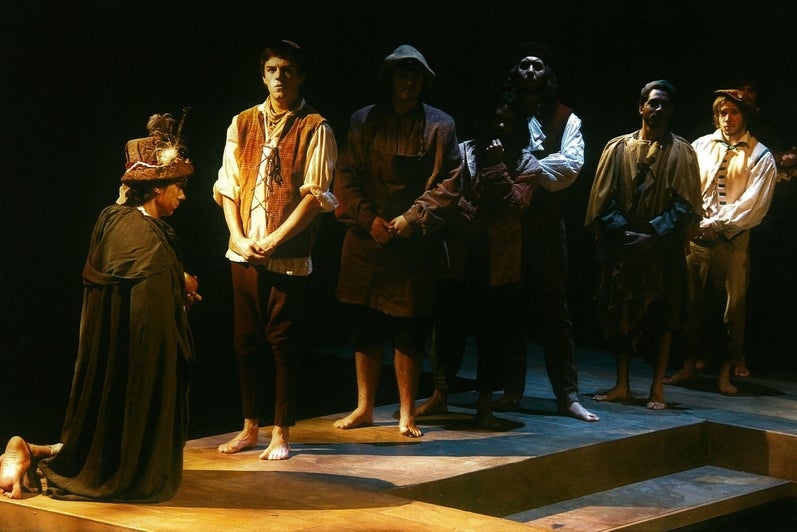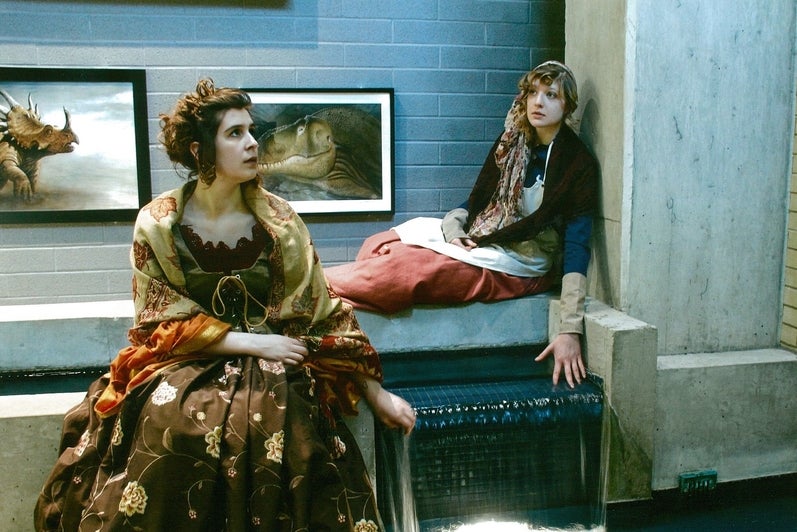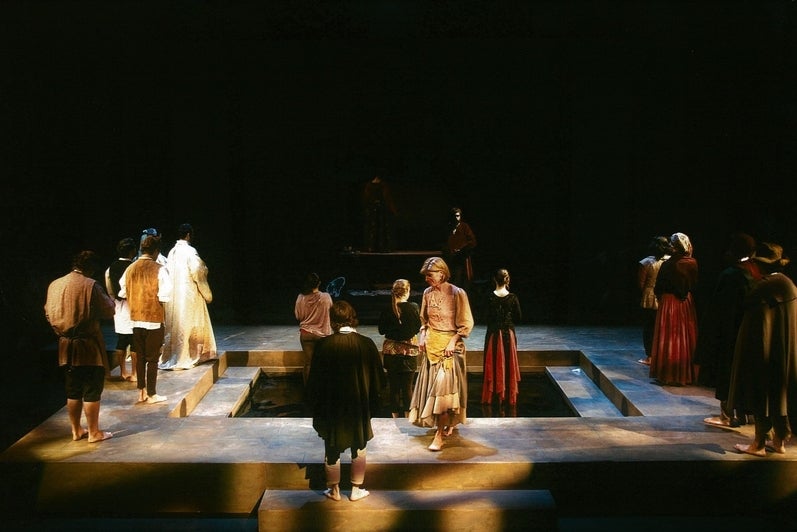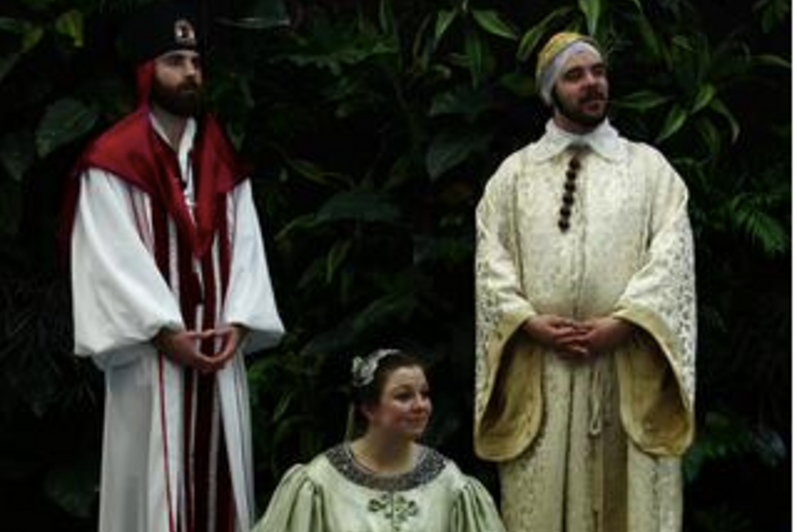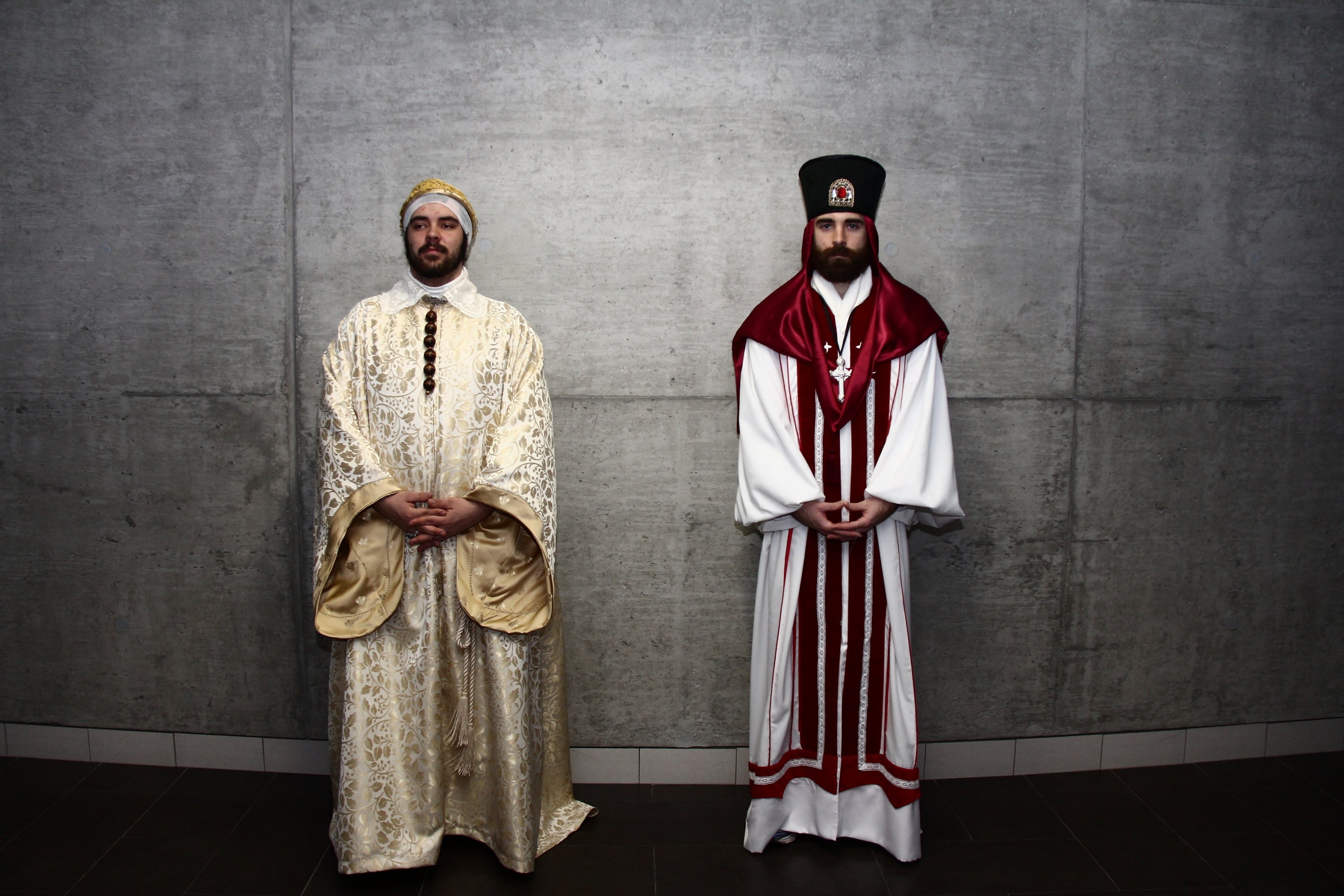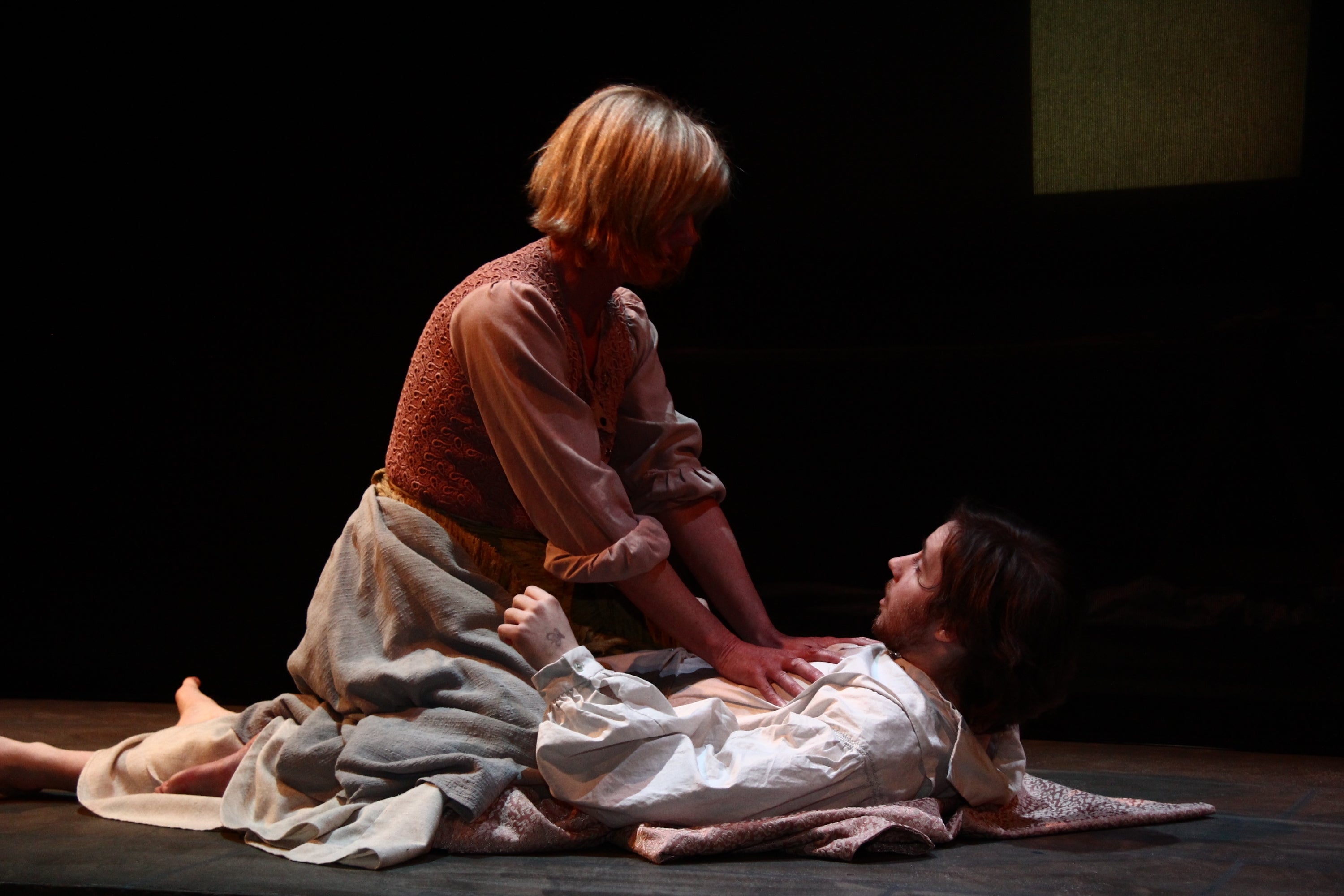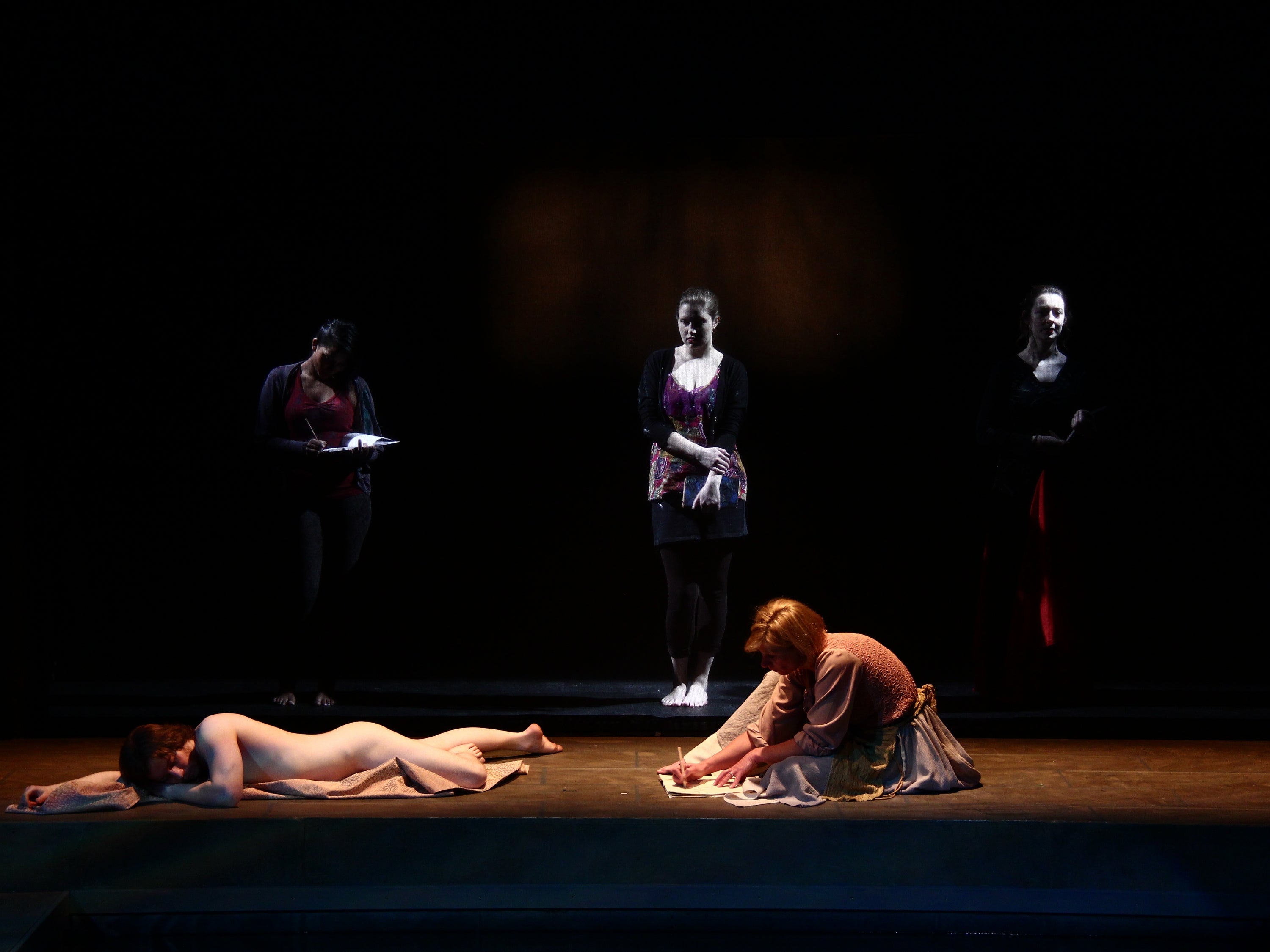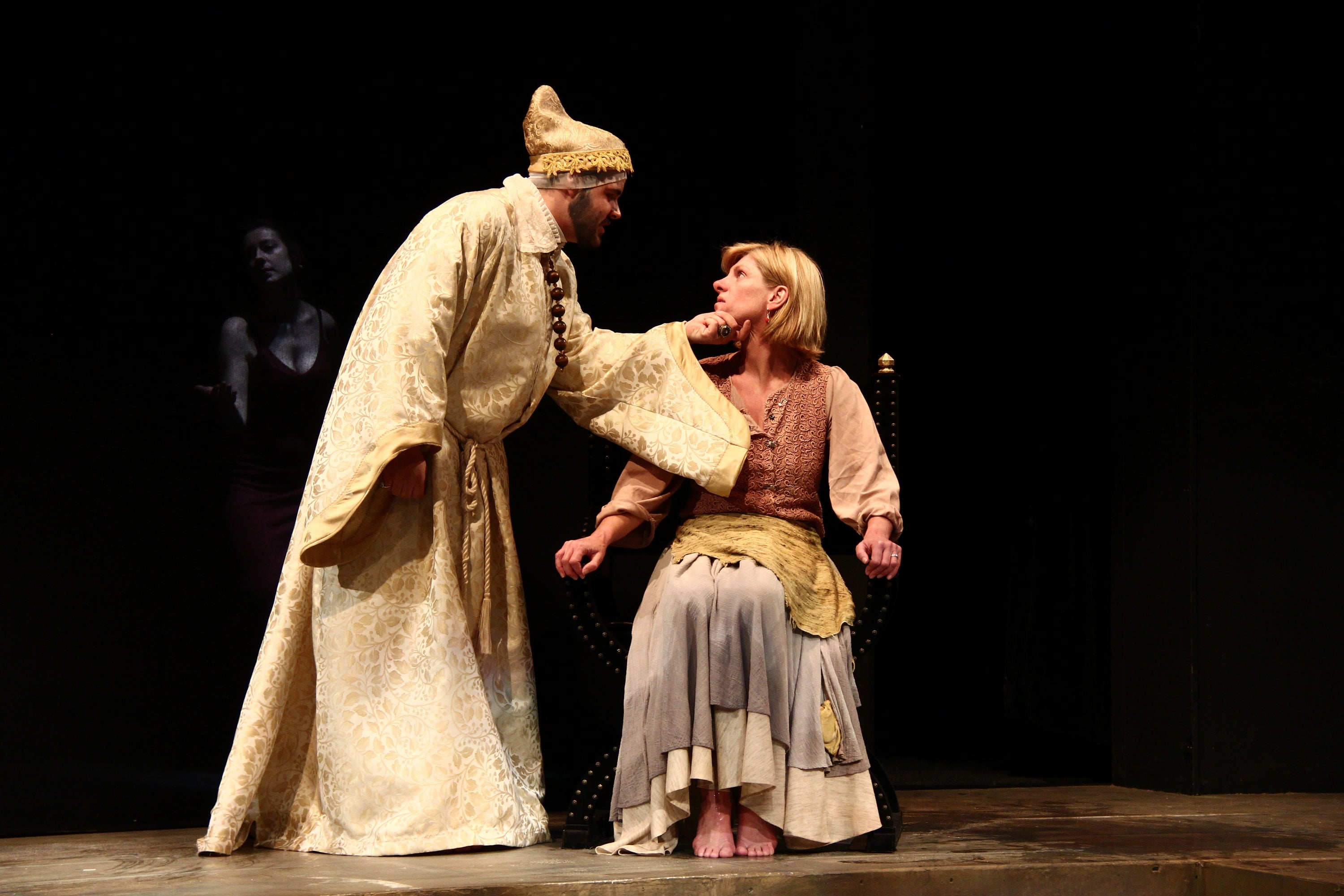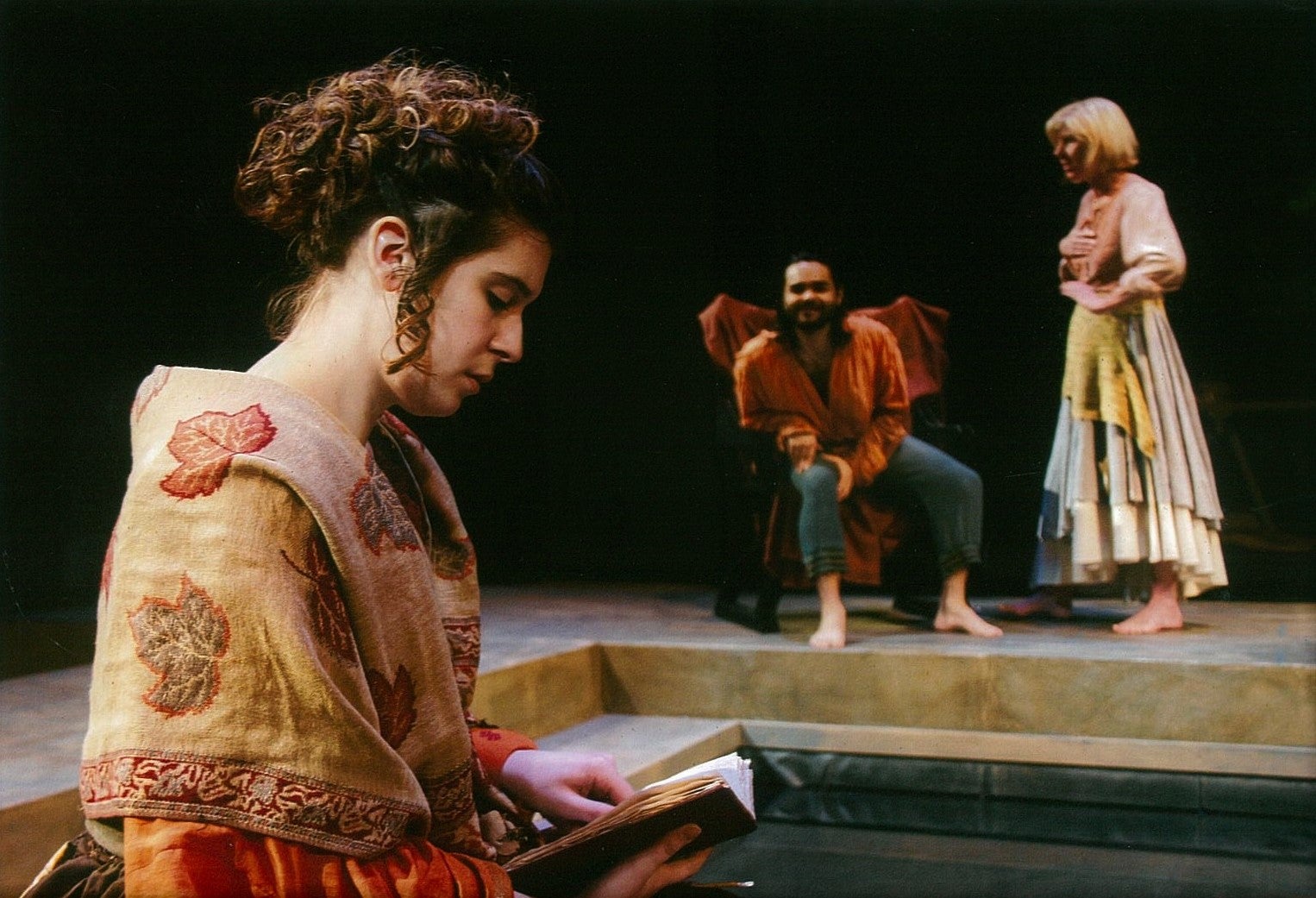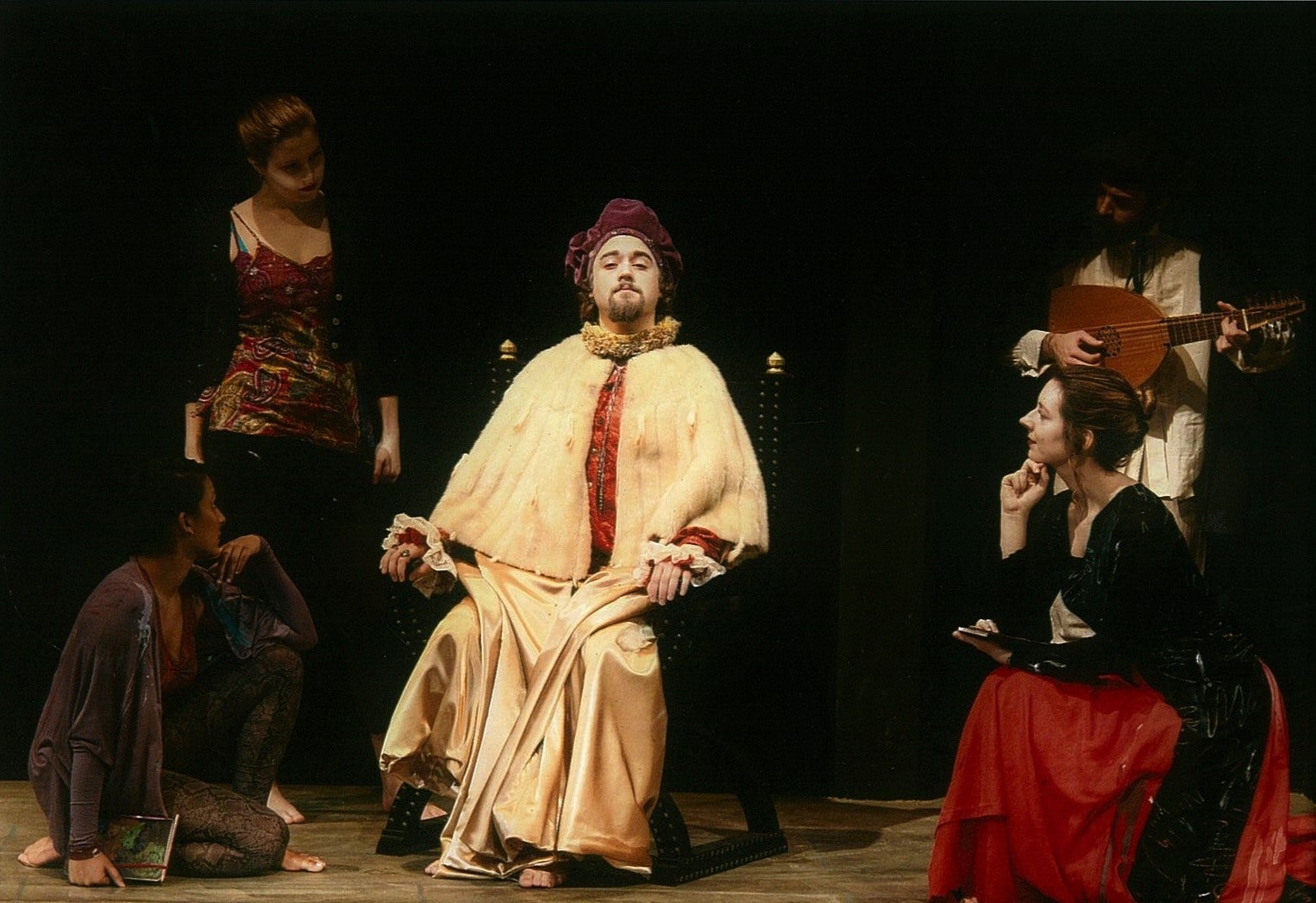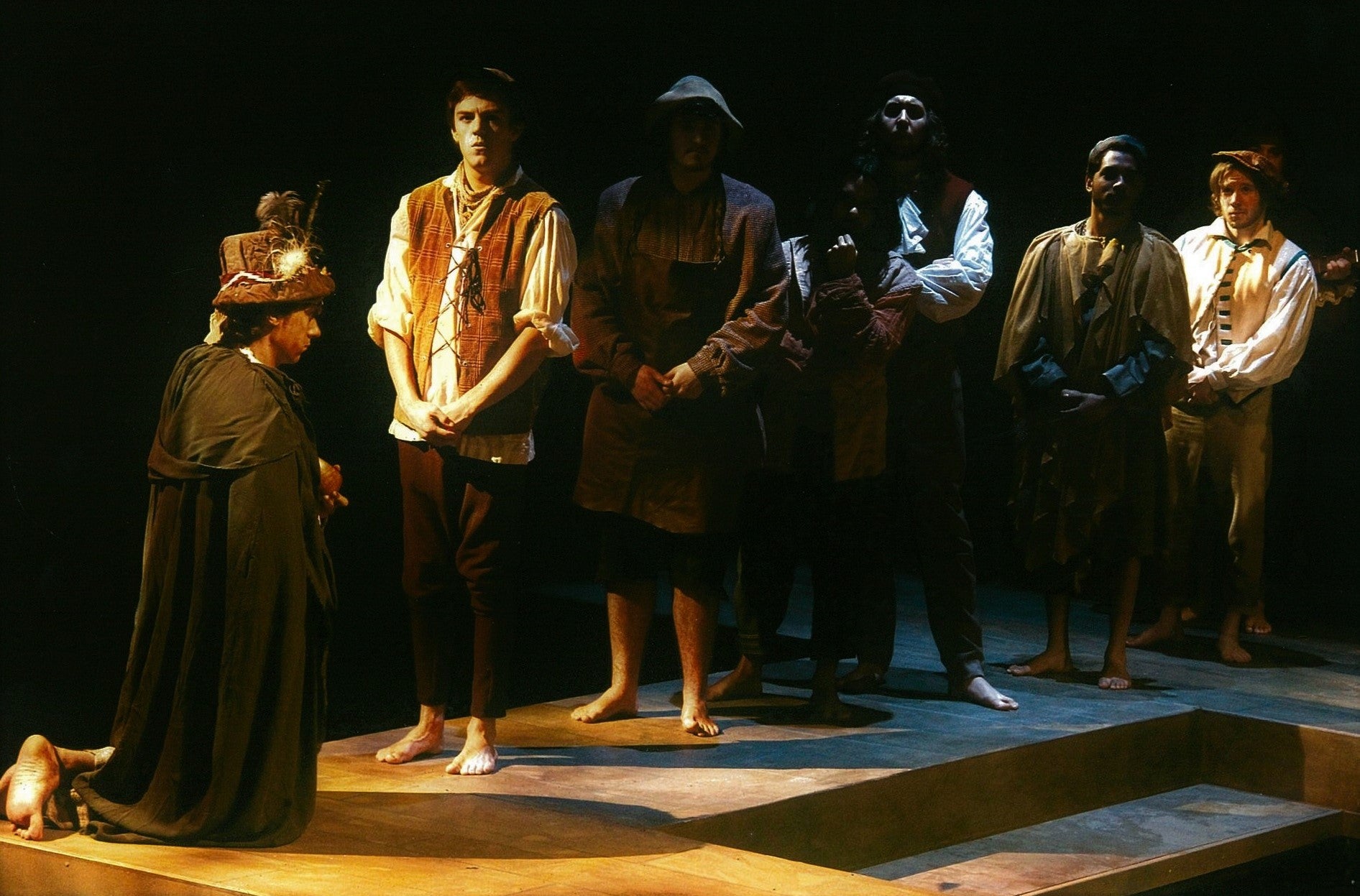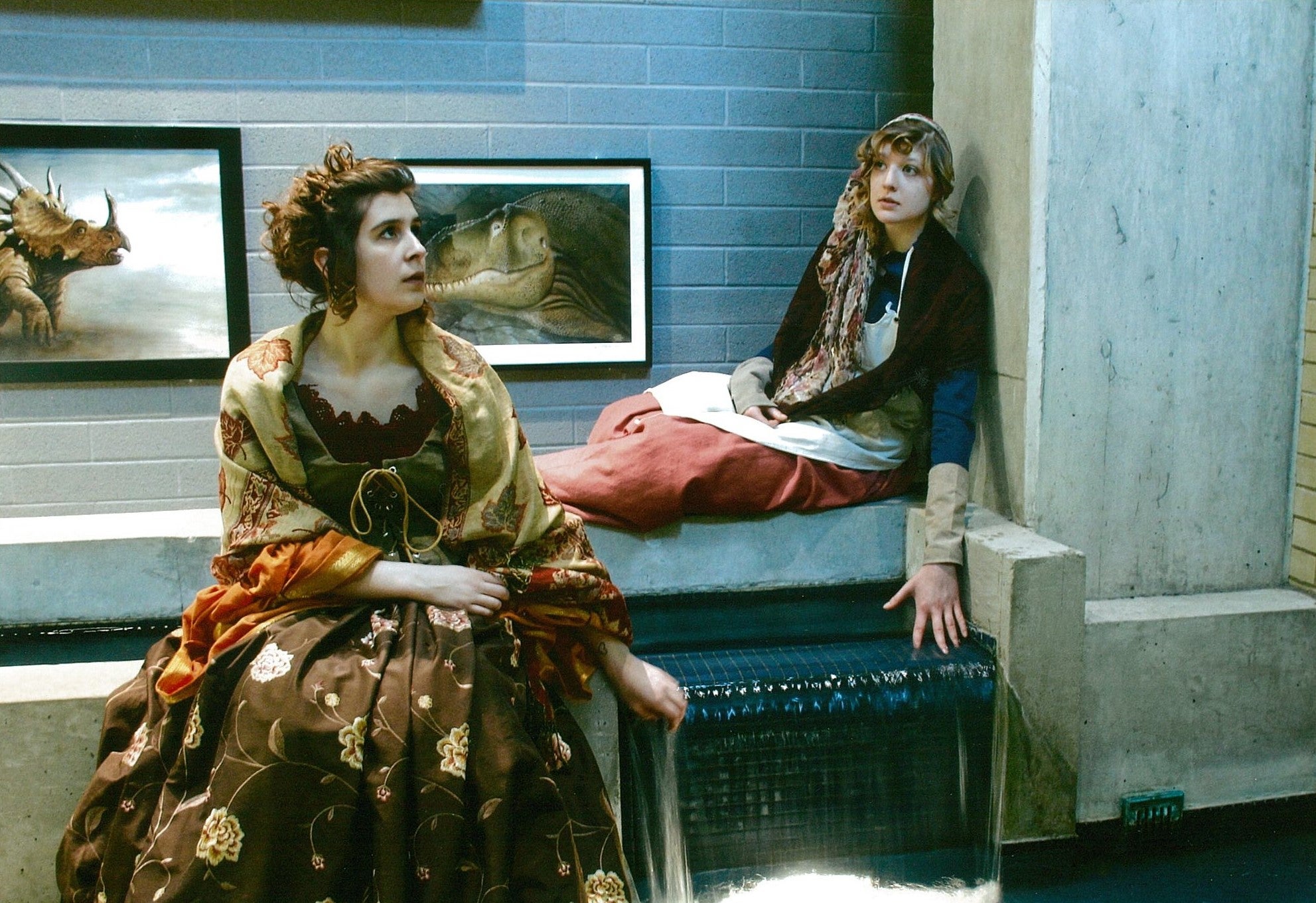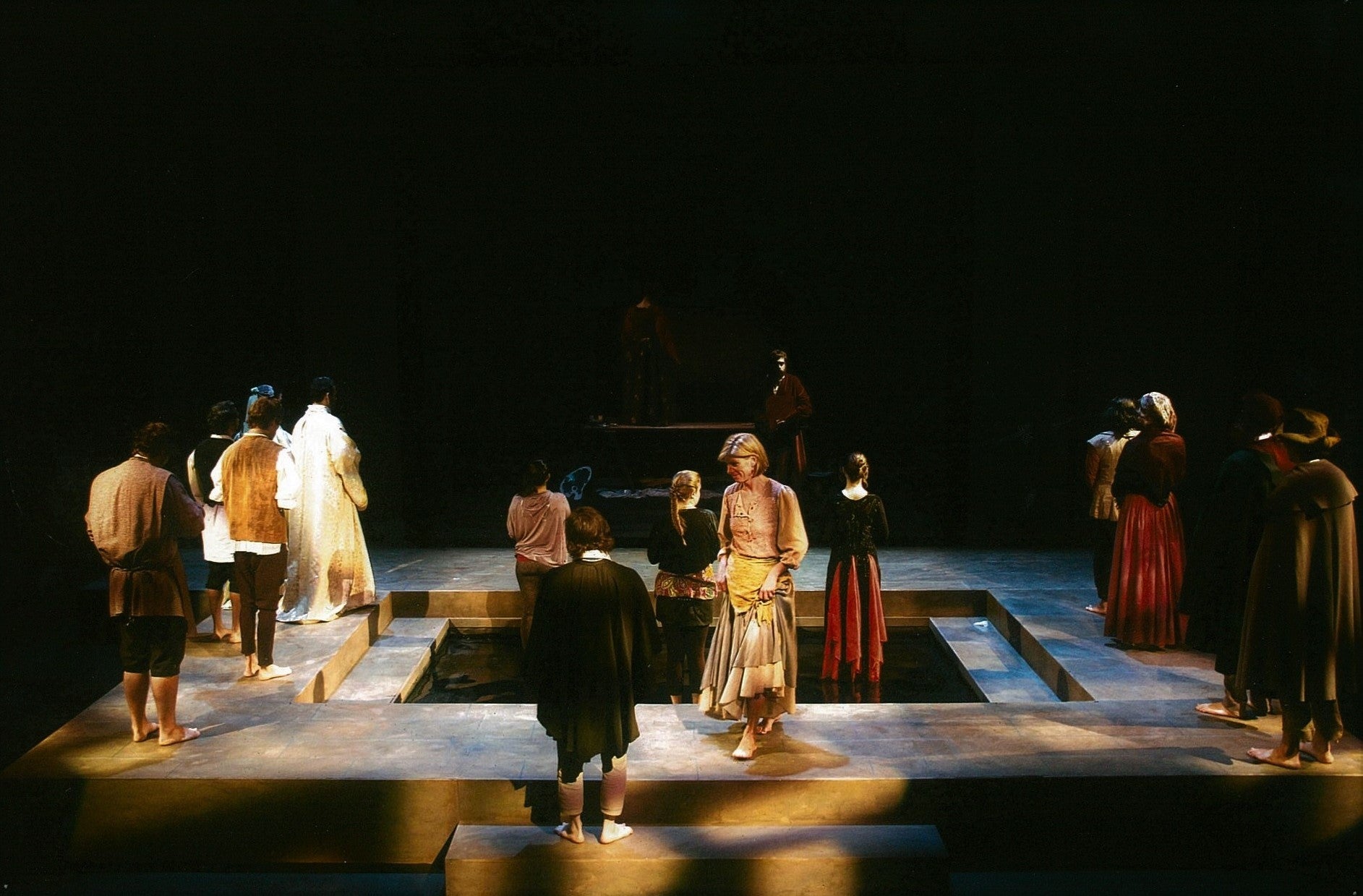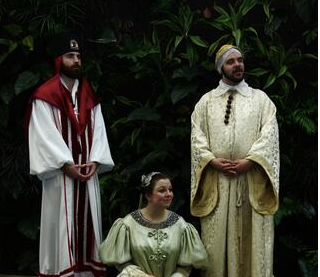On October 7, 1571, the naval fleet of the Holy League, a coalition of European Catholic states, decisively defeated the main fleet of the Ottoman Empire, just off the Greek shoreline. In a matter of hours, the Battle of Lepanto changed the course of history; the victory of the Holy League prevented the Mediterranean Sea from becoming uncontested territory for Muslim forces, it protected Italy from Ottoman invasion, and it prevented the Ottoman Empire from advancing further into Europe. The Battle of Lepanto was the last major naval battle in the Mediterranean fought entirely between galleys, and to this day, October 7 is a day of celebration and symbolic significance in many parts of Europe; out of the violent destruction of a battle, came the birthday of a bond and mentality that would become modern Europe.
Scenes from an Execution takes us to Venice shortly after the battle, where the head of state has commissioned the most talented and extraordinary artist of the time to paint this pivotal moment in history on a canvas measuring 1000 square feet. The size of the project alone suggests the outcome will be a major public event but, as we discover in the play, the painting of the Battle of Lepanto is as much a contested encounter – of power, of history, of politics – as the moment it depicts. Galactia, the artist who wins the commission, possesses a vision and approach to her art that turns the surface of the painting into as traumatic an experience as the battle itself.
Indeed, in Scenes from an Execution, Howard Barker has demonstrated how the best art provides a terrain of encounter, and how the vision, creative impulse and skill of the artist gives rise to a critical response from the patron and public alike.
Scenes from an Execution poses many urgent and compelling questions about the agency of art in response to war. Barker wrote the play in 1986, in part as a response to Margaret Thatcher’s aggressive response to Argentina over British territory in the Falkland Islands, but in many ways his text is even more poignant today, post-911, after the wars in Iraq and Afghanistan, and in a time when the idea of Europe is questioned.Barker is a contemporary English writer, who, among any number of stellar contemporaries, has established his own unique style of language and theatre.. A master of his craft, his language at once illuminates and provokes, and ultimately serves the intelligence of actors in service of an audience, as both embrace the rights of interpretation.
Winter 2012 Production
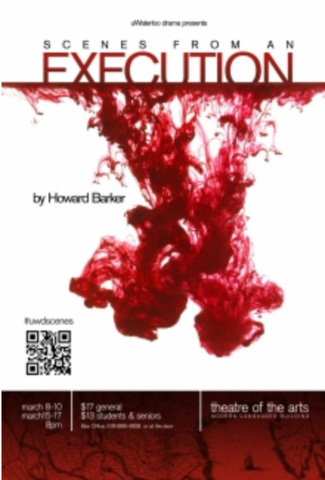
By Howard Barker
Directed by: Andy Houston
Performances: March 8-10 & 15-17, 2012
Venue: Theatre of the Arts, Modern Languages Building
Cast
Galactia - Heather Hill
Carpeta - Greg Johnson
Supporta - Katie Honek
Dementia - Michelle Kestle
Urgentino - William Innes
Ostensible - Brent Meidinger
Rivera - Andreea Hluscu
Suffici - Erik Johnson
The Sketchbooks - Aviva Dreksler, Kelly Leffler, Jessica Singh
Prodo, Official, Mourner - Connor Hughes
Sordo - Tom Duff
Albanian, Man in the next cell - Sukshmadarshi Maharas
Sailor #1, Workman, Gaoler - Michael Webb
Sailor #2, Lasagna - Keethan Krishnamoorthy
Sailor #3, Pastaccio, Man - Cody Burns
Creative
Director - Andy Houston
Sound Designer / Composer - Meghan Bunce
Costume Designer - Jocelyne Sobeski
Set / Props Designer - Kelly Wolf
Lighting Designer - Arun Srinivasan
Video Designer - Tallen Kay Fight
Director - Daniel Levinson
Dramaturgs - Robert Motum, Simon Thibodeau, Jordan Nottrodt, Kelly Leffler
Stage Manager - Selin Erkaya
Assistant Stage Manager - Jane Honek, Courtney Palmer, Jana Zacharias
Production
Director of Production - Scott Spidell
Production Manager - Janelle Rainville
Technical Director - Gill Lesperance
Department Chair - Jill Tomasson Goodwin
Admin Assistant - Robin Atchison
Publicity - Jordan Nottrodt, Jen Gooderham
Sound/Video - Will Innes, Nathan Boutilier
Wardrobe - Ali Reid, Meghan Jones, Kelly Conlan, Brianne Haydon, Chantal Willis, Adam Lemieux
Lights - Josh Campbell, Liese Bornath, Hilary Pitman, Bob Stan, Ryan Bassett, Kimberlee Walker
Props/Paint - Shaw Forgeron, Caitlyn Derderian, Derek McGill, Kelsey Sewell, Vanessa Wainwright, Traci Dow
Carpentry - Megan Hill, Jo Daly, Chris Korroch, Mel Williamson, Keethan Krishnamoorthy
Thank you
Dr. Alma Santosuosso
Tim Hegedus
Terry Mckenna
Francine Nesbitt
Magdalena Tomsinska
Wendy Philpott
Derek Lindman
Marie Wong
Ryan Voisin
Glenn Stillar
Adam Glover
Cecile Jenny
Print Integrity
Fine Arts Dept
Renison Ministry Service
Sound Factory Music School
Kevin Hansen: Monster Farm
Weapons: Chris Warrilow & Fantastic Creations
